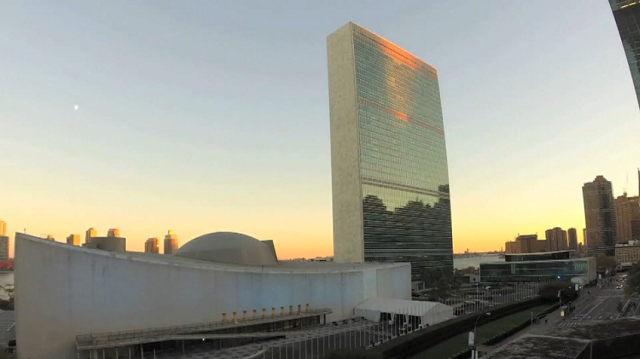UK, France, Germany say China's claims in South China Sea violate law, UNCLOS

France , Germany and the United Kingdom have informed the United Nations of their rejection of China's "historic rights" in the South China Sea.
In a note verbale filed by the permanent mission of the UK before the UN in New Yourk, the European states referred to the arbitral ruling in 2016 which upheld the Philippines' claims based on the UN Convention on the Law of the Sea.
"France, Germany and the United Kingdom also highlight that claims with regard to the exercise of 'historic rights' over the South China Sea waters do not comply with international law and UNCLOS provisions and recall that the arbitral award in the Philippines v. China case dating to 12 July 2016 clearly confirms this point," the note verbale said.
The note was filed on Wednesday in New York (Thursday in Manila).
The UK mission asked the UN to circulate the note verbale "to all States Parties to UNCLOS and all Member States of the United Nations."
"Therefore there is no legal ground for continental states to treat archipelagos or marine features as a whole entity without respecting the relevant provisions in Part II of UNCLOS," the note verbale said.
The three countries stressed the importance of "unhampered exercise of the freedom of the high seas, in particular the freedom of navigation and overflight, and of the right of innocent passage enshrined in UNCLOS, including in the South China Sea."
Arbitral win in 2016
The Philippines in July 2016 won against China in a landmark ruling by an international tribunal that invalidated Beijing’s massive claims in South China Sea.
advertisement
"The Tribunal concluded that there was no legal basis for China to claim historic rights to resources within the sea areas falling within the ‘nine-dash line’," the Permanent Court of Arbitration said then.
The 501-page ruling was handed down in The Hague, Netherlands, more than three years after the case was filed by the Philippines under the Aquino administration in January 2013.
President Rodrigo Duterte early during his administration invoked an independent foreign policy that was supposedly less dependent on the US and more cordial toward China.
He said he wouldn't go to war with China over the claims in the West Philippine Sea because it would lead Filipinos to their deaths.
Over the course of his administration, he has repeatedly called China and Chinese President Xi Jinping friends of the Philippines.
Earlier this week, Duterte said he would prefer COVID-19 vaccines from China or Russia because western pharmaceutical firms were asking for advance payments.
China told to comply
The Philippines in July publicly called on China to comply with the 2016 arbitral ruling four years since the decision was handed down by an international court in The Hague, Netherlands.
"Compliance in good faith with the award would be consistent with the obligations of the Philippines and China under international law, including UNCLOS (United Nations Convention on the Law of the Sea) to which both parties are signatories," Foreign Secretary Teodoro Locsin Jr. said in a statement.
China has since rejected the Philippines' call, saying the arbitration ruling was "illegal and invalid.”
At the same time, it reminded Duterte’s government of a "consensus" it forged with China "on properly handling the so-called arbitration case" to repair the two Asian neighbors' strained relations.
The agreement, China said, "has laid down solid ground for the turning-around of bilateral relations."
China is also a signatory to the UNCLOS. -NB, GMA News



